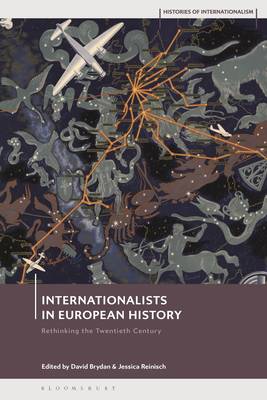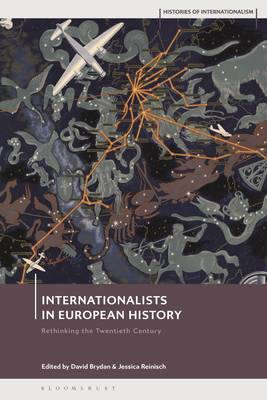
- Retrait gratuit dans votre magasin Club
- 7.000.000 titres dans notre catalogue
- Payer en toute sécurité
- Toujours un magasin près de chez vous
- Retrait gratuit dans votre magasin Club
- 7.000.000 titres dans notre catalogue
- Payer en toute sécurité
- Toujours un magasin près de chez vous
Internationalists in European History
Rethinking the Twentieth Century
69,45 €
+ 138 points
Description
Representing a crucial intervention in the history of internationalism, transnationalism and global history, this edited collection examines a variety of international movements, organisations and projects developed in Europe or by Europeans over the course of the 20th century. Reacting against the old Eurocentricism, much of the scholarship in the field has refocussed attention on other parts of the globe. This volume attempts to rethink the role played by ideas, people and organisations originating or located in Europe, including some of their consequential global impact.
The chapters cover aspects of internationalism such as the importance of language, communication and infrastructures of internationalism; ways of grappling with the history of internationalism as a lived experience; and the roles of European actors in the formulation of different and often competing models of internationalism. It demonstrates that the success and failure of international programmes were dependent on participants' ability to communicate across linguistic but also political, cultural and economic borders. By bringing together commonly disconnected strands of European history and 'history from below', this volume rebalances and significantly advances the field, and promotes a deeper understanding of internationalism in its many historical guises. The volume is conceived as a way of thinking about internationalism that is relevant not just to scholars of Europe, but to international and global history more generally.Spécifications
Parties prenantes
- Editeur:
Contenu
- Nombre de pages :
- 304
- Langue:
- Anglais
- Collection :
Caractéristiques
- EAN:
- 9781472986986
- Date de parution :
- 25-08-22
- Format:
- Livre broché
- Format numérique:
- Trade paperback (VS)
- Dimensions :
- 156 mm x 234 mm
- Poids :
- 426 g






